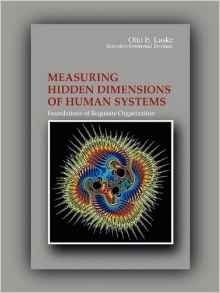Can you imagine being part of a dialog in which you not only listen to what your interlocutor is saying but also to the underlying structure of his or her thinking? If you had knowledge of the thought form structure of human sense making, this way of listening, called “dialectical”, would enable you to point to what is missing (absent) both in your own and others’ verbal communication. It would thereby help you deepen your and others’ thinking in real-time dialog. Your critical listening would then not be restricted to content but would equally focus on underlying thought structures used by your interlocutors.
In a team and group context, you would be able to point to interlocutors’ thought gaps in a compassionate, inter-developmental, way. Such gaps are not “academic”. They are more serious than that since they translate into gaps between how people think and how reality works.
It is this kind of dialog that the present article introduces. The article paves the way for an intelligent reading and teaching of the Manual of Dialectical Thought Forms (DTFM), which in the near future will become available in pdf form on this website under Publications. The article introduces cutting-edge thinking tools for use in organizations and educational institutions. In contrast to “hyperthinking” () which never transcends formal logical thinking, the manual enables you to learn complex thinking from a tradition now 2,500 years old. (Mentoring in this art is available at IDM.)
Why is this noteworthy?
It’s noteworthy in a culture of pervasive downloading based on logical thinking in which more and more people never get to experience the dynamic of their own untrammeled thinking, and thus lose their best potential for making sense of the world in a critical and realistic way. This experiential loss is endemic in a culture that, while claiming to be dialogical, is actually monological (e.g.,Wilber’s quadrants). Despite its ubiquitous talk about “change”, this culture is pinned to a (static) status quo simply because without knowledge of thought forms, one cannot understand transformations which are by nature dialectical. They simply do not happen in logical thinking where they are only, and endlessly, talked about.
Dialogical thinking is today disavowed in philosophy, the sciences (including the management sciences), and our culture in general. Experts in these fields see the real world as something “out there”, thus misconstruing the nature of human sense making (and meaning making as well). From a perspective of dialogism, the real world cannot be separated from how minds construct it here and now, everyone in a slightly different, but ultimately convergent, way.
***
The present article seems to make a “philosophical” argument, but not really. There is nothing more practical than a good theory. The management sciences especially need fresh thinking, and that’s precisely what the manual introduced here leads to.
The DTF manual is noteworthy for another reason: it is a critique of the simplistic transfer model of communication followed in the social sciences, according to which making sense happens by “transferring” cognitions from one single mind to others by way of language. Nothing could be further from the truth! Sense making is not a transfer of any kind but a process of interactive construction — through thought forms — of the real world.
The present article helps you understand why the transfer model (pinned on formal logic) is so hard to overcome if one does not have knowledge of universal thought paradigms called thought forms. These forms are not unfamiliar to you, but you have never been asked or helped to recognize them in your own mind. So, here is your chance to begin getting to know them!
This introduction to DTFM is structured in three parts:
- Foundations of real-world dialog
- Dialoguing tools of dialectic
- Teaching programs for, and applications of, dialogical dialectic.
Your feedback sent to otto@interdevelopmentals.org is most welcome.
